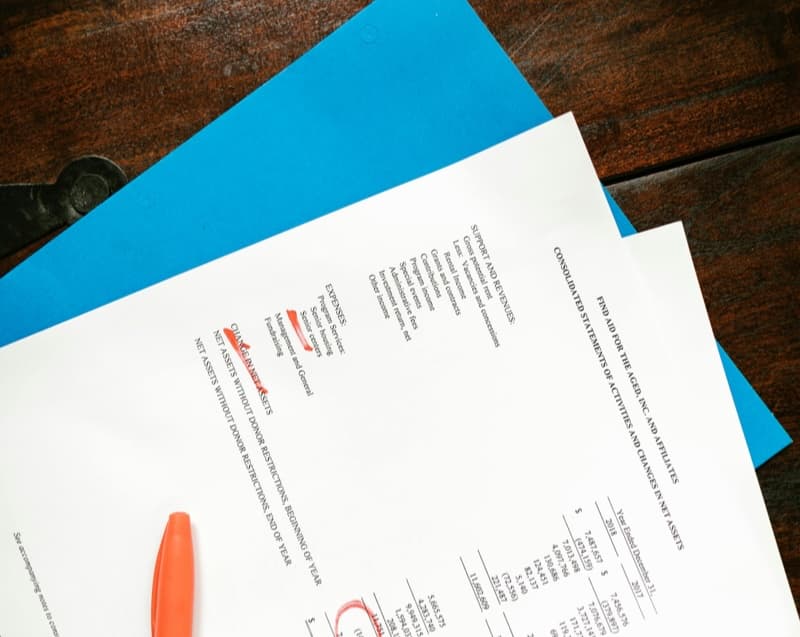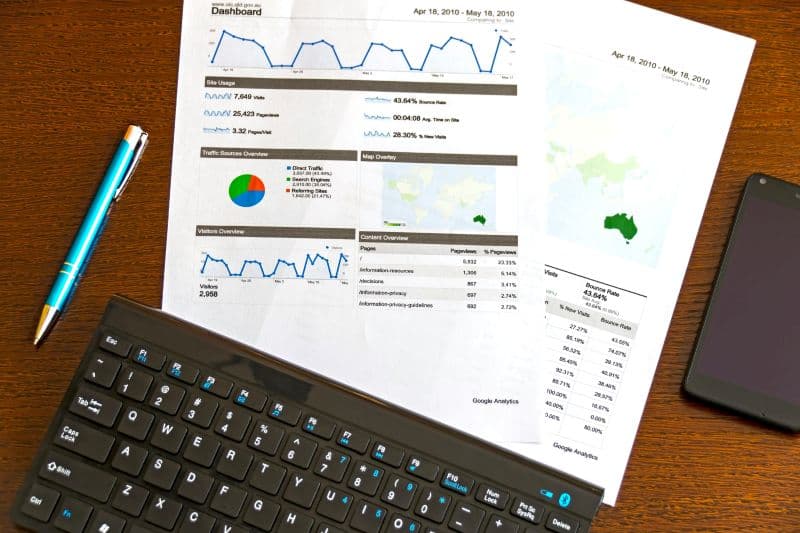Insights & Expertise
Expert insights, guides, and best practices for IFRS 16 lease accounting and compliance.
Featured Article
Rehabilitation Provisions For Leases Explained (With Examples) - IFRS 16
Leases with rehabilitation provisions require lessees to recognise decommissioning and restoration obligations as part of the initial right-of-use asset measurement under IFRS 16. This article explains how to measure rehabilitation provisions at lease commencement, account for remeasurements under IFRIC 1, and apply IFRIC 5 when rehabilitation funds are used to finance restoration costs.

Recent Articles

Operating Leases Explained (Lessees) - ASC 842
Under ASC 842, lessees recognize operating leases by recording a right-of-use asset and lease liability on the balance sheet at commencement, measured at the present value of lease payments. Operating lease expense is recognized on a straight-line basis over the lease term, comprising both the depreciation of the right-of-use asset and interest accretion on the lease liability presented as a single operating expense.

All Major Cash Flow Statement Adjustments Explained: Reconciling Profit to Cash
Cash flow adjustments reconcile accrual-based profit to actual cash generated from operations by reversing non-cash items such as depreciation, amortisation, impairments, and unrealised foreign exchange gains or losses, whilst adjusting for timing differences between profit recognition and cash receipts or payments. This article explains the adjustments required under both IFRS and US GAAP to convert profit figures to operating cash flow.

IFRS 16 Leases: Summarised Guide to Lessee and Lessor Accounting
IFRS 16 Leases requires lessees to recognise most leases on the balance sheet as a lease liability and right-of-use asset, whilst lessors classify leases as either finance or operating leases. This comprehensive guide covers lease identification, measurement, subsequent accounting, and modifications for both lessees and lessors under IFRS 16.

Right-of-Use Asset Explained With Examples: IFRS 16 Recognition, Measurement and Accounting
A right-of-use asset represents a lessee's right to use an underlying asset for the lease term under IFRS 16. The right-of-use asset is initially measured at cost, comprising the lease liability, initial direct costs, prepaid lease payments, and restoration obligations, and is subsequently depreciated over the shorter of the lease term or the useful life of the underlying asset if ownership transfers.

IFRS 18 Aggregation and Disaggregation Requirements - Grouping Financial Information
IFRS 18 aggregation and disaggregation requirements establish principles for grouping financial information based on shared and dissimilar characteristics. Entities aggregate assets, liabilities, equity, income, expenses and cash flows with similar characteristics whilst disaggregating items with dissimilar characteristics to provide useful structured summaries in primary financial statements and detailed information in the notes.

IFRS 18 Analysis of Operating Expenses Explained With Examples
IFRS 18 requires entities to present an analysis of operating expenses on the face of the income statement using the by-nature method, by-function method, or a mixed presentation approach. The standard mandates that entities select the method providing the most useful structured summary of operating expenses, with specific disclosure requirements for nature expenses when functional presentation is used.

Changes to Statement of Cash Flows Explained - IFRS 18
IFRS 18 eliminates classification options for interest and dividend cash flows in IAS 7, requiring entities without specified main business activities to classify interest paid and dividends paid as financing activities, whilst interest received and dividends received must be classified as investing activities. The amendments also mandate operating profit or loss as the starting point for the indirect method.

IFRS 18: Understanding the New Income Statement Categories
IFRS 18 introduces three new income statement categories—operating, investing, and financing—requiring entities to classify all income and expenses systematically. This article explains the classification framework, main business activity assessments, and how the new categories promote comparability across financial statements.

Residual Values Explained (With Examples) – IFRS 16 Leases
The residual value of a leased asset is the estimated value of the underlying asset at the end of the lease term. It reflects the amount a lessor expects to recover through sale, re-lease, or other means once the lessee returns the asset. A certain part of this value, known as the residual value guarantee, may be guaranteed by a third party unrelated to the lessor.

Lease Identification - Determine Whether a Contract Contains a Lease - IFRS 16
A contract contains a lease if it conveys the right to control the use of an identified asset for a period of time in exchange for consideration. This article breaks down each element of that definition and explains how judgement is applied in practice under IFRS 16.

Accounting for Lease Terminations and Partial Terminations under IFRS 16
Lease terminations require careful accounting under IFRS 16, as they involve the derecognition of existing lease balances and recognition of any resulting gains or losses. Partial terminations add further complexity by requiring proportional adjustments to both the lease liability and the right-of-use asset.

Direct Financing Leases Explained (With Examples) – ASC 842
Under ASC 842, a direct financing lease is a lease (from the lessor’s perspective) where the lessor effectively acts as a financier rather than a manufacturer or dealer. In a direct financing lease, the lessor transfers substantially all the risks and rewards of the asset to the lessee, but does not recognize any selling profit immediately.

ASC 842 Finance Lease vs Operating Lease: Explained With Examples
ASC 842 requires nearly all leases to be recognized on the balance sheet as a right-of-use (ROU) asset and a lease liability. The distinction between a finance lease and an operating lease does not affect balance-sheet recognition, but affects expense recognition, ROU asset depreciation, and cash-flow classification.

Lease Term Explained (With Examples) - IFRS 16
The lease term is the non-cancellable period of a lease, together with periods covered by an option to extend the lease if the lessee is reasonably certain to exercise that option, and periods covered by an option to terminate the lease if the lessee is reasonably certain not to exercise that option.

Sales-Type Leases Accounting Explained (With Example) - ASC 842
A sales-type lease is a finance lease in which the lessor recognises selling profit or loss at lease commencement, similar to a manufacturer or dealer lessor under IFRS 16. It typically involves transferring substantially all benefits and risks of the underlying asset.

7 Reasons Why Your Cash Flow Statement Doesn’t Balance And How to Fix it
A cash flow statement that doesn’t balance is never the result of bad luck or complexity. It is always caused by a breakdown in method. This article sets out seven common reasons why cash flow statements fail to balance and explains a two-phase approach to compiling a cash flow statement.

Subleases Explained (With Examples) - ASC 842 Accounting
The US GAAP Leases Standard, ASC 842, requires intermediate lessors to apply both lessee and lessor accounting models when entering into subleases. This article explains sublease classification, measurement, and key differences from IFRS 16, with practical examples and guidance.

Initial Direct Costs Explained – IFRS 16
Initial direct costs are incremental costs of obtaining a lease that would not have been incurred if the lease had not been obtained. These costs affect the measurement of right-of-use assets, lease investments, and the timing of expense or income recognition for both lessees and lessors.

Accounting For Short-Term and Low-Value Leases (Straight-Line Method) - IFRS 16
IFRS 16 offers lessees a recognition exemption to account for short-term or low-value leases on a straight-line expense basis, rather than recognising a lease liability and right-of-use asset. This article explains the exemption, eligibility criteria, straight-line accounting, and lease modifications.

Accounting for Rent-to-Own (or Rent-to-Buy) Arrangements - IFRS 16
Rent-to-own or rent-to-buy arrangements require careful analysis under IFRS 16 to determine whether they represent a lease, a purchase in substance, or a combination of components. The accounting outcome depends on the economic substance of the arrangement rather than its legal form.

IFRS 18 Management-Defined Performance Measures (MPMs)
Management-Defined Performance Measures (MPMs) are non-IFRS metrics used by management, outside the financial statements, to explain the entity’s financial performance. They must be clearly defined, reconciled to IFRS figures, and consistently disclosed, giving users better insight into how management evaluates and runs the business.

How to Calculate Lease Liability in IFRS 16 (With Examples)
A technical guide detailing the principles of initial lease liability measurement under IFRS 16, focusing on defining lease payments, discount rates (IRIL and IBR), and providing a practical calculation example.

IFRS 18 vs. IAS 1: Summary of Key Changes
IFRS 18 introduces management performance measures (MPMs), which are non-GAAP metrics that management uses to explain financial performance, and requires these to be disclosed with clear definitions, reconciliation to IFRS measures, and consistent labelling. It also mandates more detailed and structured disclosures about income, expenses, and performance measures, improving transparency and comparability across reporting periods and entities.

IFRS 16 vs ASC 842 Guide: Comparison and Key Differences
A detailed comparison of IFRS 16 and US GAAP ASC Topic 842, highlighting lessee and lessor accounting, scope, lease payments, discount rates, and other key differences.

Manufacturer or Dealer Lessors Explained - IFRS 16
A manufacturer or dealer lessor is an entity that manufactures or sells assets in the normal course of business and also offers those assets under lease arrangements. Unlike banks or other financial lessors who primarily earn interest income, manufacturer or dealer lessors generate profit from both the sale of the asset and the financing element of the lease.

Sale and Leaseback Transactions Explained - IFRS 16
Sale and leaseback transactions occur when an entity sells an asset and immediately leases it back. IFRS 16 contains specific accounting guidance for sale and leaseback transactions. The standard requires entities to assess whether the sale portion of the transaction qualifies as a sale under IFRS 15. This assessment drives the accounting treatment for both the seller-lessee and the buyer-lessor.

Non-Lease Components Explained With Examples - IFRS 16
A non-lease component is an activity that transfers a good or service to the lessee, but does not relate to the right to control the use of an identified asset. Many lease contracts include not just the right to use an asset but also additional goods or services—such as maintenance, cleaning, or administrative support. These elements must be evaluated carefully to determine whether they constitute lease or non-lease components, or perhaps no component at all.

Subleases Explained (With Examples) - IFRS 16 Accounting
A sublease occurs when a lessee (the intermediate lessor) grants a lease of the right-of-use (ROU) asset obtained under an original lease to another party (the sublessee). Importantly, the intermediate lessor continues to account for the original lease with the head lessor and also accounts for the sublease with the sublessee.

Leasehold Improvements Explained (With Examples) - IFRS Accounting
Under IFRS 16, leasehold improvements are treated as property, plant, and equipment (PPE) and fall under the scope of IAS 16. This article explains how a lessee should account for leasehold improvements including recognition, measurement, and depreciation.

Variable Lease Payments Guide - IFRS 16: Definition, Examples, and Accounting Treatment
Variable lease payments are a key area of complexity under IFRS 16. This article explores their types, examples, and the appropriate accounting treatment for both lessees and lessors.

Consolidation of Intercompany Leases Guide - IFRS 16 (Including Journal Entries)
An intercompany lease is a lease between entities within the same group. These transaction should be eliminated in the financial records of the group, as an accounting entity (the group) cannot have transactions with itself. This concept has critical implications during consolidation.

Lease Modifications Guide - IFRS 16 Leases
This article explains how lease modifications impact lessees and lessors under IFRS 16, including remeasurements, discount rates, journal entries and ohter accounting treatments.

Tax Treatment of Leases Under IFRS 16 - South Africa
This article explains the different tax consequences for leases, highlighting the distinctions between ICAs and normal rental agreements under South African VAT and income tax law.

Lease Incentives Guide - IFRS 16 - Examples & Journal Entries
Lease incentives, often provided by lessors to lessees, impact both the accounting treatment of leases and financial statements under IFRS 16. This article explores the definition, treatment, and implications of lease incentives for both lessees and lessors.

Finance Leases vs. Operating Leases - IFRS 16 Examples
A finance lease transfers substantially all risks and rewards of ownership to the lessee. The lessor in a finance lease derecognises the asset and recognises a receivable. All other leases are operating leases, where the asset is retained on the lessor's balance sheet and lease income is recognised on a straight-line basis.

Interest Rate Implicit In The Lease Explained - IFRS 16 & ASC 842
The interest rate implicit in the lease is the rate that reflects the lessor’s return on a lease. One can think of it as the lessor's internal rate of return on the lease. This rate is used to discount lease payments to a present value, in order to recognise a lease liability